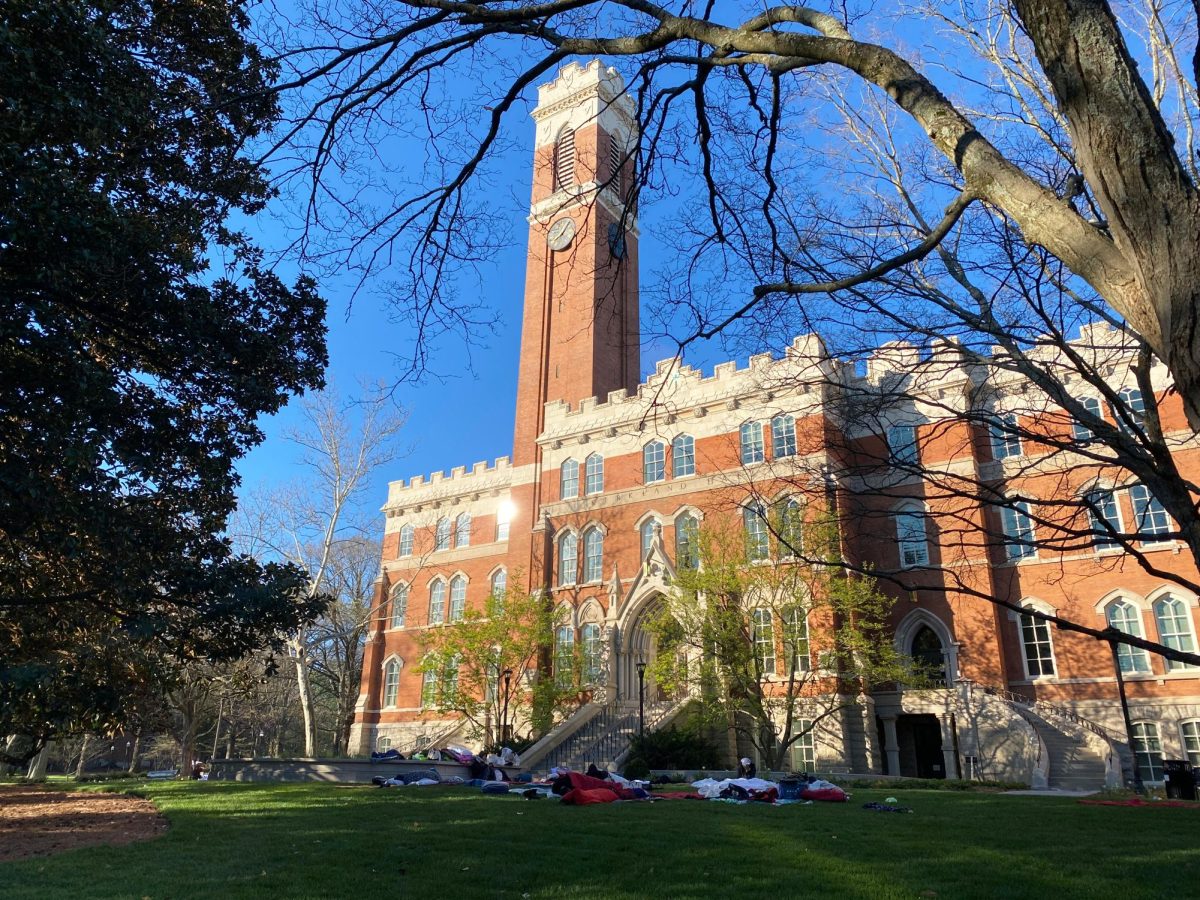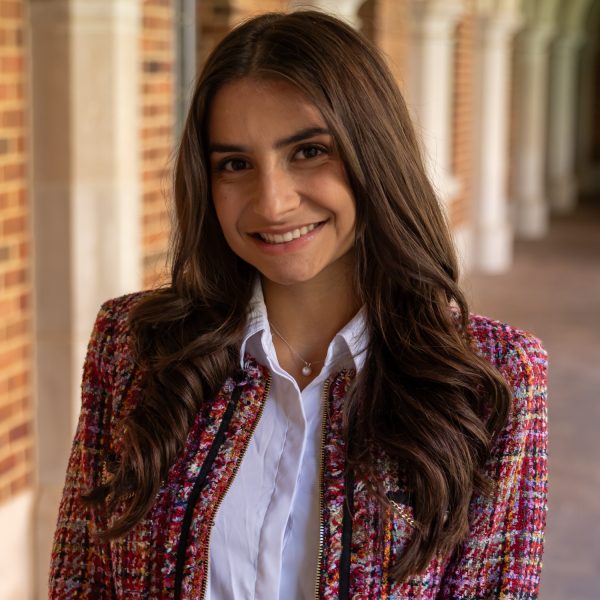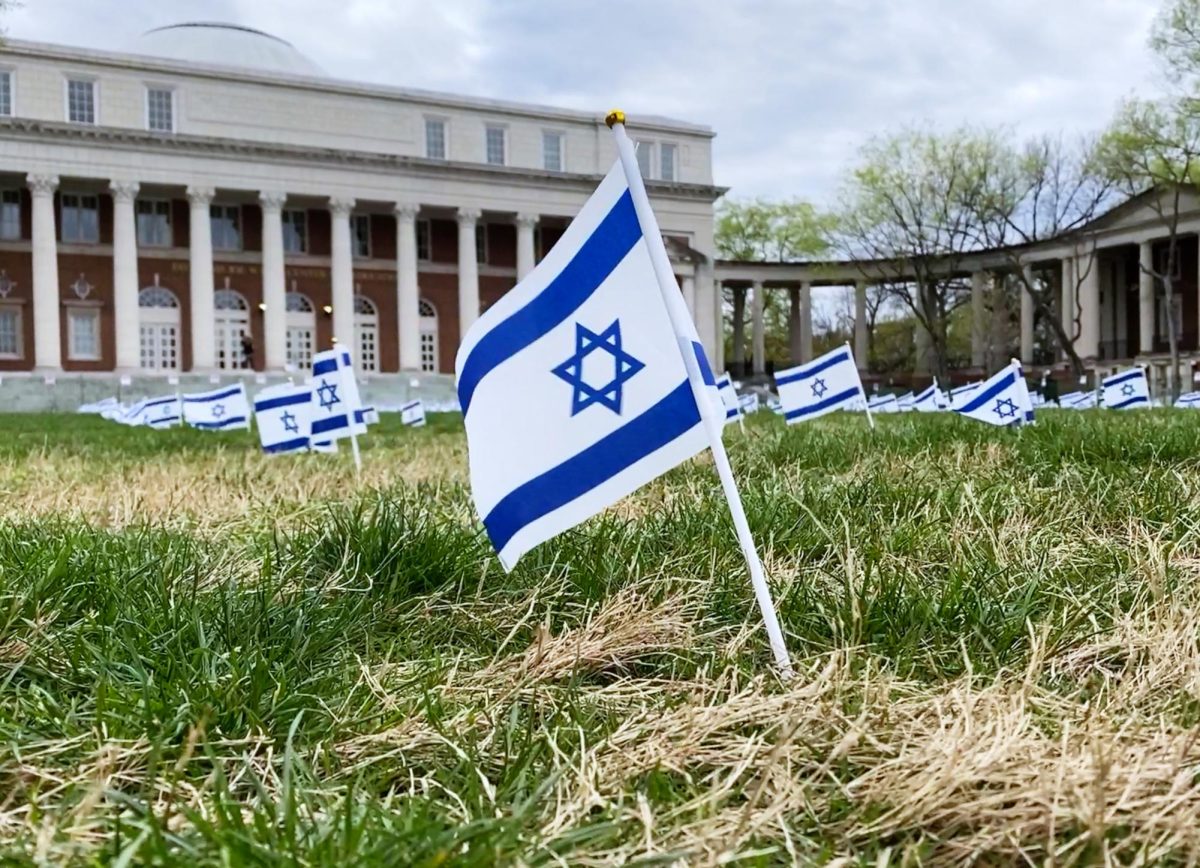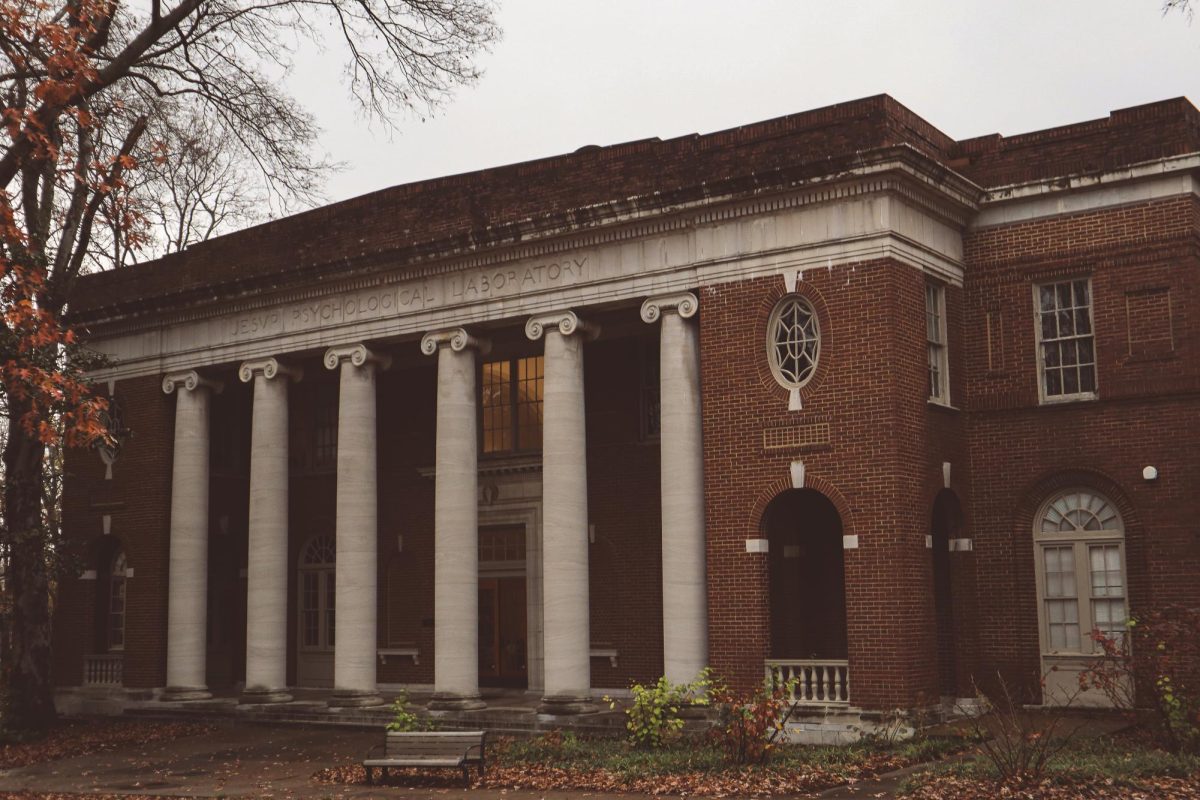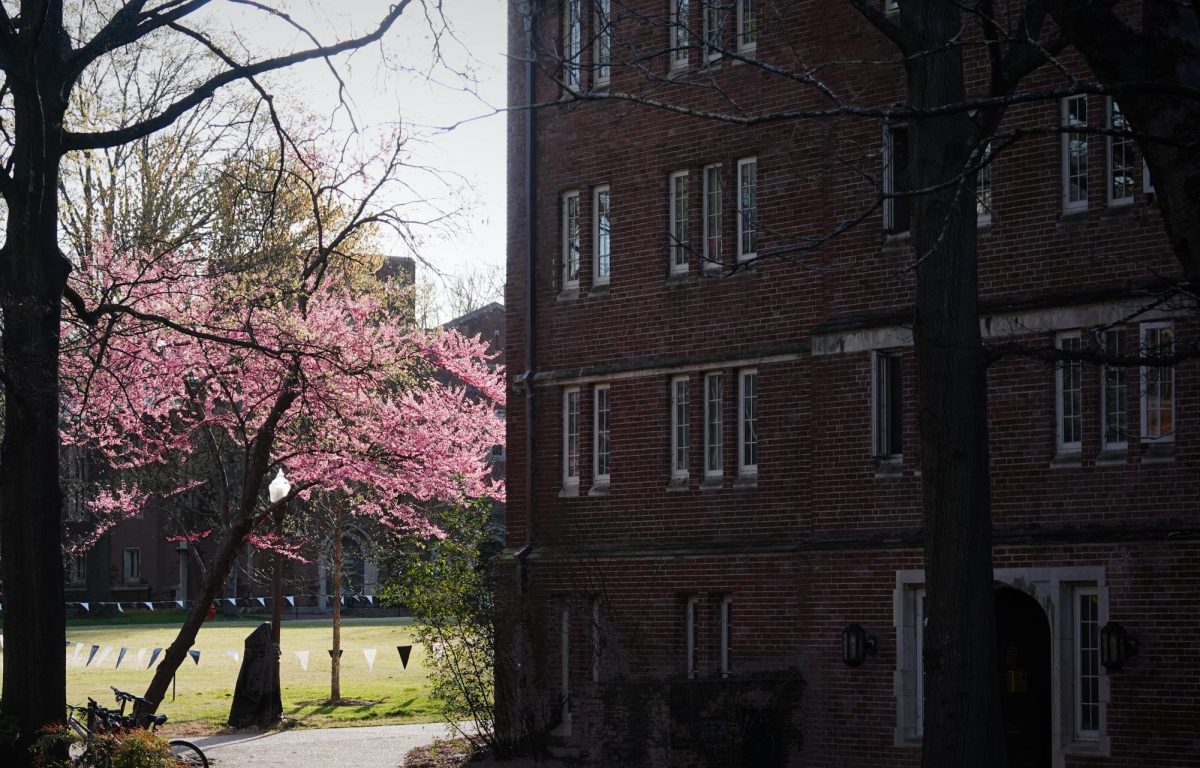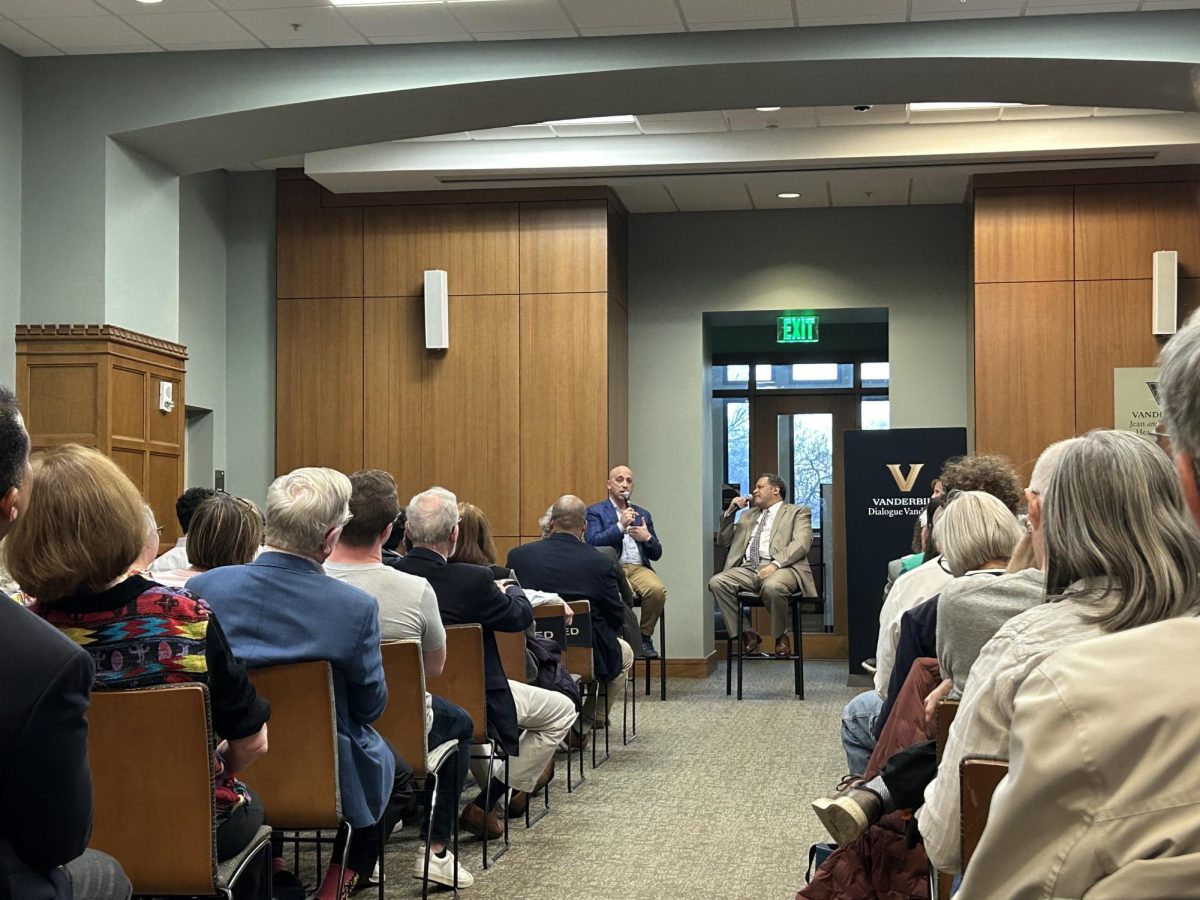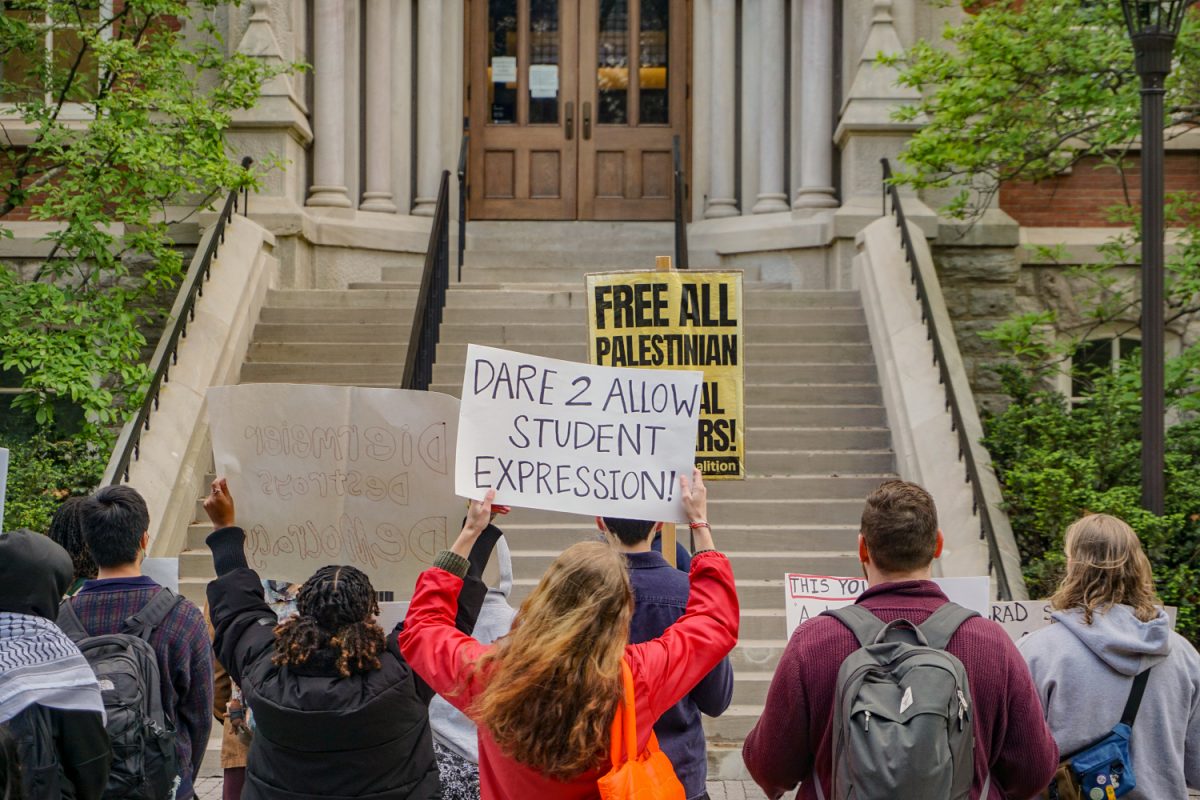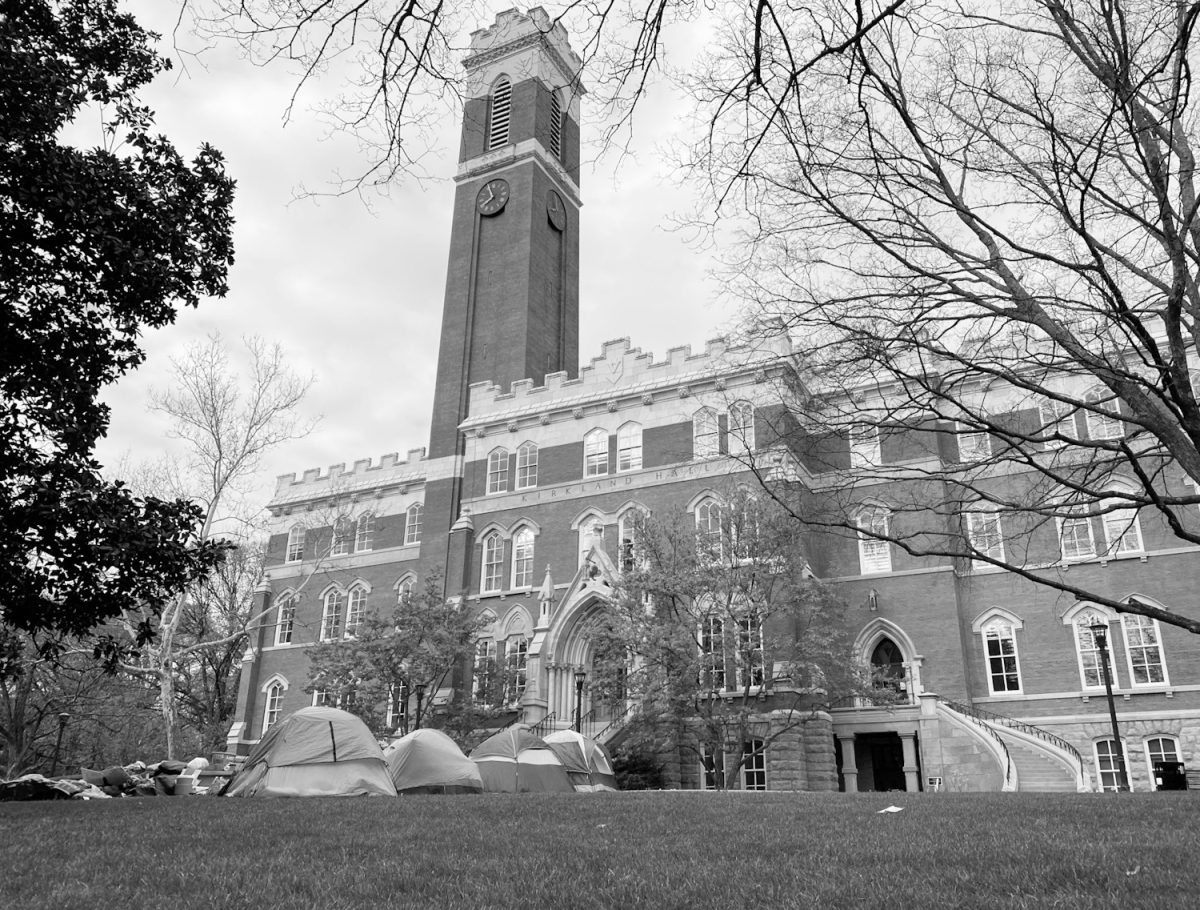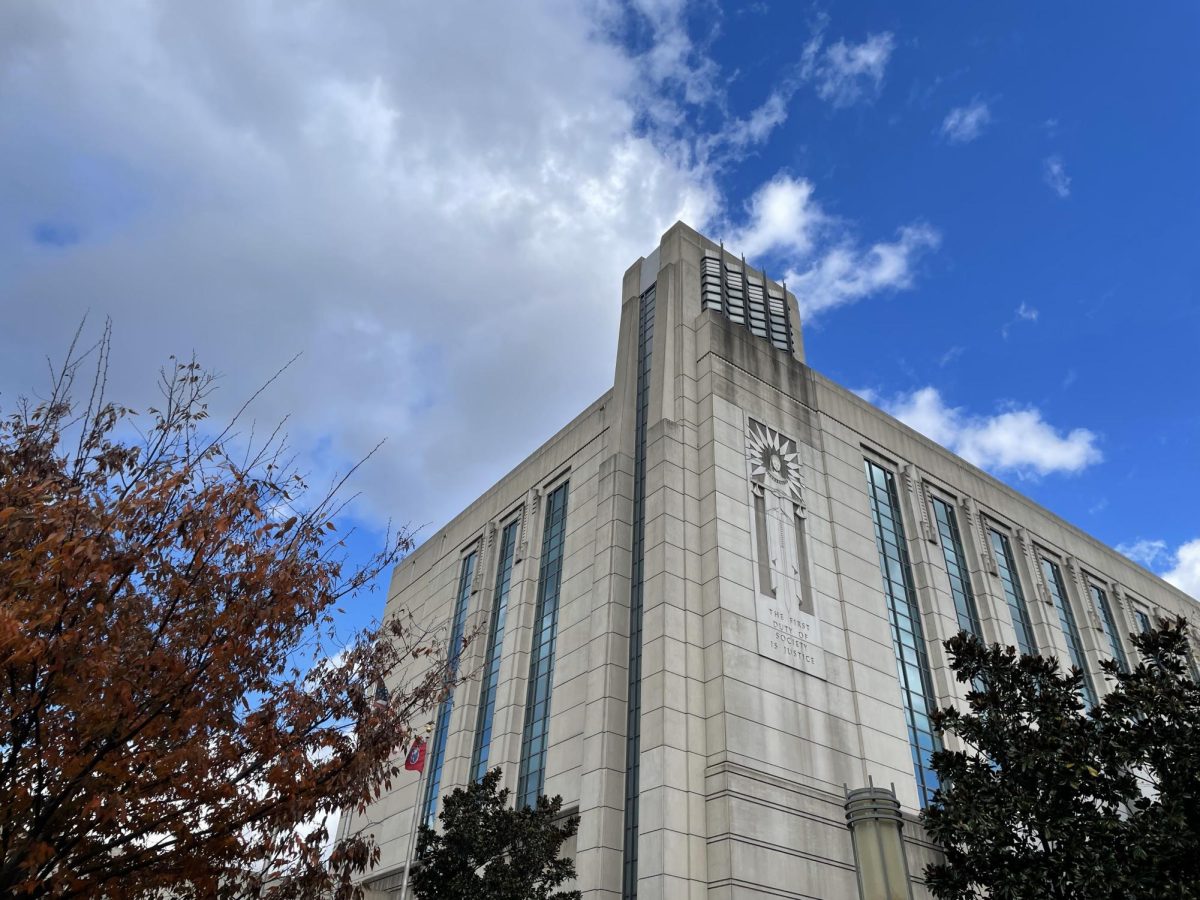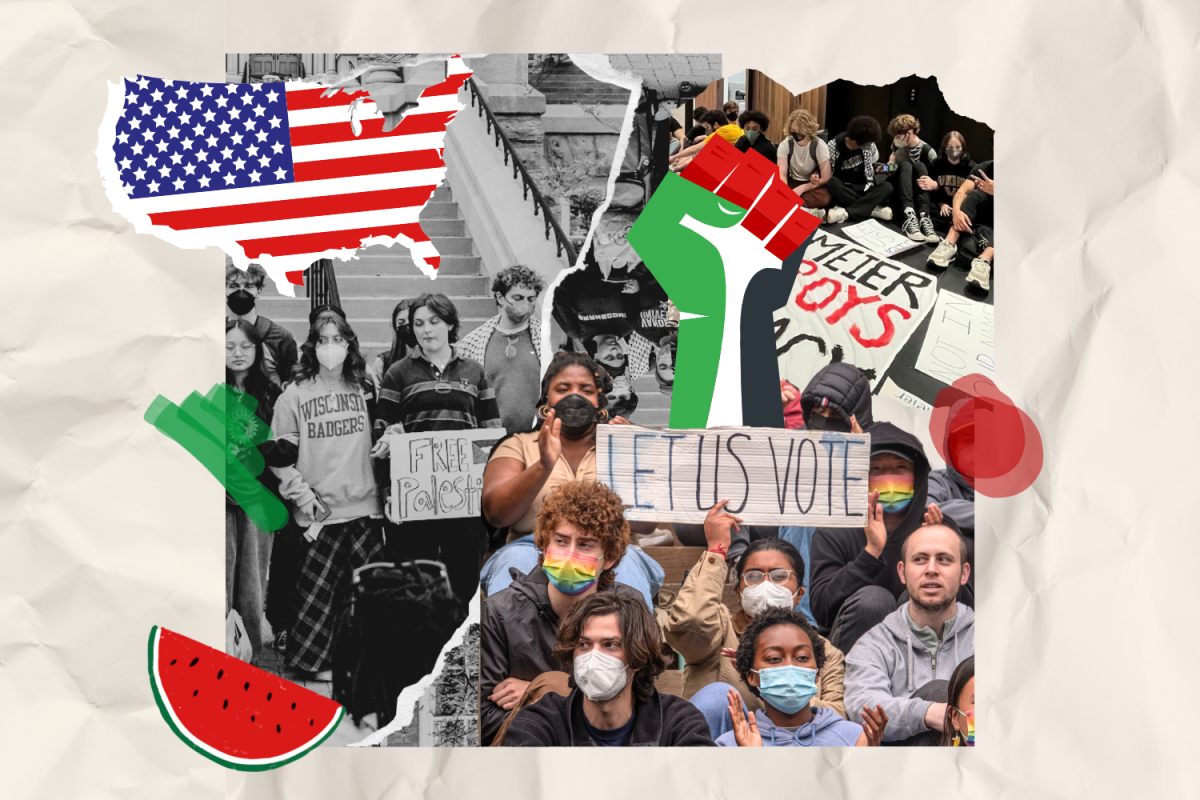The Office of Student Accountability began preliminary hearings on March 28 for the 27 students who protested as part of the Vanderbilt Divest Coalition’s sit-in at Kirkland Hall and were subsequently interimly suspended. Here’s all you need to know about the Student Accountability process and the current status of suspended protestors’ hearings.
In an interview with The Hustler, attorney Jordan Sluder — a Nashville criminal defense attorney specializing in drug crime — is advising a “large group” of suspended students throughout the Student Accountability process. He declined to disclose how many students with whom he is working due to the number “fluctuating.” Among this group of students are three of the four students facing criminal charges, for whom he is also currently legally representing pro bono.
Sluder explained that he is collaborating with civil litigator Jonathan Wallace to guide students through the Student Accountability process. Sluder said, as of March 28, a few other students besides Schulman have acquired separate, individual legal counsel for the Student Accountability process. Wallace did not respond to The Hustler’s request for comment.
First-year Jack Petocz and senior Devron Burks, both of whom face criminal charges, declined to comment on their ongoing legal and Student Accountability cases. Sophomore Sam Schulman and the fourth student protestor — who is being kept anonymous for protection from retribution — facing criminal charges did not respond to The Hustler’s request for comment. Other suspended protestors either declined or did not respond to The Hustler’s requests for comments, as did students who have been protesting outside Kirkland Hall in support of the suspended protestors. These protestors moved today due to impending storms.
The Office of Student Accountability also declined to comment on the specific cases of the suspended protestors, citing federal privacy laws.
Student Accountability hearing process
The Student Handbook explains that interim restrictions — including suspensions — are implemented on students pending further investigation into their Student Accountability cases. They are imposed by the Vice Provost and Dean of Students — G.L. Black — or their designee.
The Student Handbook outlines the procedure for Student Accountability hearings, which begins with the assertion of charges against a student in a preliminary hearing.
“[The Accountability Hearing provides the] opportunity for students to present all relevant information at an accountability meeting, to challenge adverse testimony and information, to speak on their own behalf, to call witnesses…,” the Student Handbook reads.
Following this hearing, the student can either proceed with the Accountability Hearing immediately or delay it by up to three days. Sluder stated that the university is planning to postpone suspended protestors’ Accountability Hearings until all have had their preliminary hearings, pushing the Accountability Hearings until at least April 3.
“Extensions beyond the three-day waiting period are permitted only at the discretion of Student Accountability with a presumption that most cases, including complex ones, can be resolved fairly within the provided timeframe,” the Student Handbook reads.
Students can bring another Vanderbilt student, faculty member or staff member to serve as an advisor during the hearings. Undergraduate students also cannot bring those with “formal legal training” or provide a polygraph test to prove innocence. Student Accountability declined to clarify the meaning of “formal legal training” to The Hustler. However, due to this policy, Sluder stated that he cannot attend the hearings of the students with whom he is working but is otherwise advising them in the process.
Student Accountability sanctioning
After the Accountability Hearing, Student Accountability will determine whether the student broke Vanderbilt policy using a “preponderance of the evidence” standard — whether it is more likely than not that the policy was broken. If the student is found responsible, “an appropriate outcome” is decided by the Accountability Officer. Student Accountability declined to identify the current Accountability Officer to The Hustler, specify how they are chosen or if they change on a case-by-case basis.
Students can appeal Student Accountability’s final decision to an “unbiased body”: the Appellate Review Board for Co-Curricular Matters. The Board consists of 37 people chosen by the chancellor of their designee — a tenured faculty member as the chair; 16 full-time faculty members; and 20 full-time students, two from each school.
“Full-time faculty members [are] selected from among the schools as follows: four from the College of Arts and Science, two from the Blair School of Music, two from Peabody College of Education and Human Development, two from the School of Engineering, and one each from the remaining six schools of the University,” the Student Handbook reads.
According to the Student Handbook, common sanctions range from an educational conference to expulsion. These punishments are determined based on the alleged policy violation, the student’s previous Student Accountability record and their “cooperation and honesty.” Heavier punishments — such as suspension and expulsion — are reported to external agencies “as needed.” Student Accountability declined to clarify when such reporting would be necessary and the agencies to which the Student Handbook refers.
Some sanctions can be deferred, meaning the student would complete an alternate action plan instead of the punishment. If the student does not complete the plan or commits another violation during the deferral period, they will receive the original punishment.
Often, sanctions are put in place with an “accountability action plan,” or extra steps the student would have to complete, such as paying fines and/or restitution, writing letters of apology or completing online educational modules.
Sluder said he did not want to speculate about potential sanctions that could be given to the suspended protestors.
Faculty accountability process
Some suspended students told The Hustler that faculty members are housing them while they go through the Student Accountability process and temporarily are suspended from campus. Chapter 7 of Part III of the Faculty Manual provides guidelines for interpersonal relationships with “students/trainees/housestaff.” Chapter 1 of Part IV of the manual states that disciplinary action can be taken against faculty members for “professionally incompetent performance or neglect of duty.”
“Members of the faculty are expected to be aware of their professional responsibilities and to avoid apparent or actual conflict of interest, favoritism, bias, or other issues of professional ethics,” Chapter 7 of Part III of the Faculty Manual reads.
Vice Provost for Faculty Affairs and Professional Education Tracey George declined to comment on whether faculty members housing suspended students could violate the Faculty Manual due to this assessment being “fact-bound.”
“Our faculty have a responsibility to support and promote the wellbeing of their students in accordance with the guidelines laid out by the faculty manual. Faculty must exercise discretion in how they provide support for their students, and the university takes any faculty misconduct seriously,” George said.
She stated that no faculty members are currently facing disciplinary action for housing suspended students. The Hustler was unable to obtain contact information for faculty members housing students.

